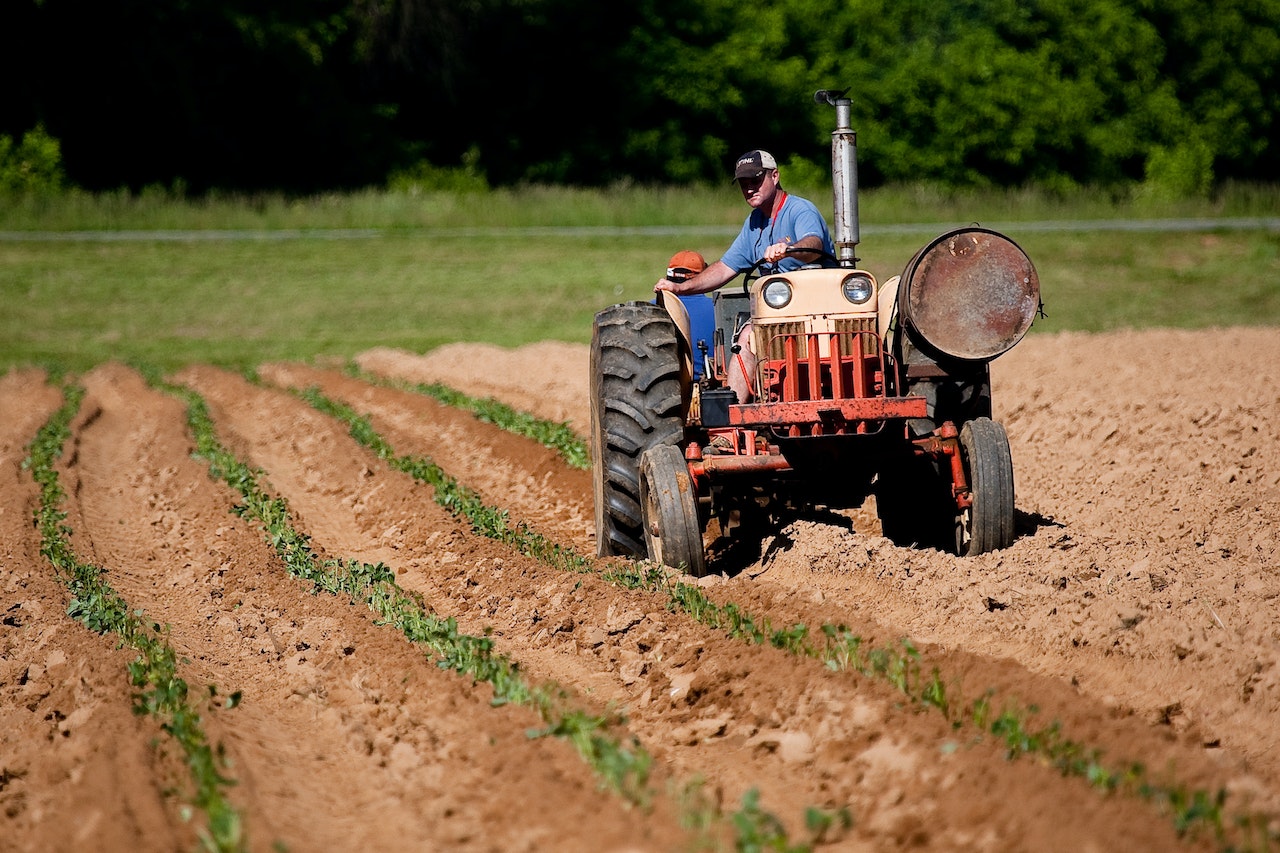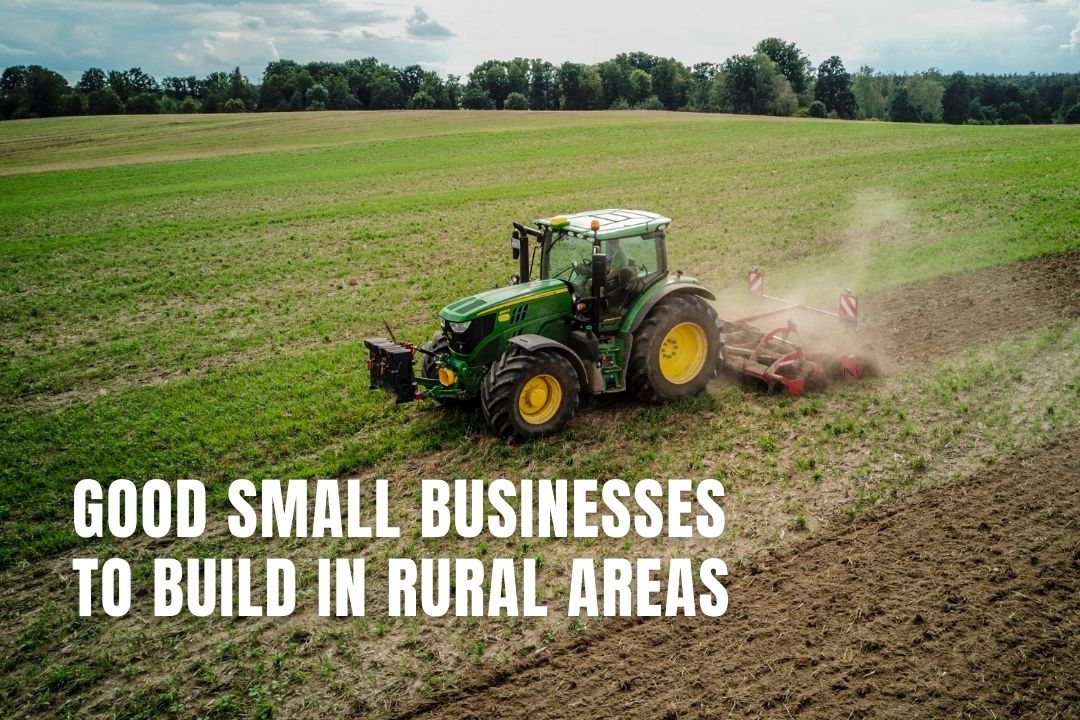Unlocking the Potential of Rural Areas for Entrepreneurs
Rural areas have long been perceived as challenging environments for entrepreneurs, with limited access to resources, infrastructure, and markets. However, this perception is changing, and rural areas are increasingly being recognized as hubs for innovation and entrepreneurship. With the rise of digital technologies and the growth of the gig economy, rural areas are now more connected than ever before, providing opportunities for entrepreneurs to tap into global markets and networks.
Small business ideas for rural areas are diverse and varied, ranging from agriculture and tourism to online services and digital products. These businesses not only create employment opportunities for local residents but also contribute to the local economy and help preserve rural culture and heritage. Moreover, rural entrepreneurs are often driven by a strong sense of community and social responsibility, which can lead to more sustainable and environmentally-friendly business practices.
Despite the challenges, rural entrepreneurship offers many benefits, including lower startup costs, a more relaxed pace of life, and a stronger sense of community. Additionally, rural areas often have a lower cost of living, which can help entrepreneurs stretch their budgets further and achieve a better work-life balance. With the right mindset and support, rural entrepreneurs can overcome the challenges and capitalize on the opportunities that rural areas have to offer.
According to the US Census Bureau, rural areas are home to over 46 million people, representing approximately 15% of the US population. This demographic is often characterized by a strong sense of community, a love for the outdoors, and a desire for a more relaxed pace of life. By understanding the needs and preferences of rural communities, entrepreneurs can develop business ideas that cater to these demands and create successful and sustainable businesses.
How to Identify Profitable Business Ideas for Rural Areas
Identifying profitable business ideas for rural areas requires a deep understanding of the local community, its needs, and its preferences. One effective way to do this is to conduct market research, which involves gathering data on the local economy, demographics, and consumer behavior. This information can help entrepreneurs identify gaps in the market and develop business ideas that cater to these needs.
Another approach is to leverage the unique characteristics of rural areas, such as their natural beauty, outdoor recreational opportunities, and strong sense of community. For example, entrepreneurs can develop business ideas that capitalize on rural tourism, such as bed-and-breakfast establishments, outdoor adventure services, and local event planning. These businesses not only create employment opportunities for local residents but also contribute to the local economy and help preserve rural culture and heritage.
Small business ideas for rural areas can also be identified by exploring the local agricultural industry. Many rural areas are rich in natural resources, making them ideal for farming, livestock production, and other agricultural activities. Entrepreneurs can develop business ideas that support these industries, such as organic farming, agritourism, and farm-to-table restaurants. These businesses not only provide employment opportunities for local residents but also contribute to the local food system and help preserve rural culture.
In addition to these approaches, entrepreneurs can also identify profitable business ideas for rural areas by exploring the local service industry. Many rural areas have a high demand for services such as home maintenance, pet care, and education services. Entrepreneurs can develop business ideas that cater to these needs, such as handyman services, pet grooming, and tutoring services. These businesses not only provide employment opportunities for local residents but also contribute to the local economy and help improve the quality of life for rural residents.
Agricultural Business Ideas for Rural Areas
Agriculture is a vital sector in rural areas, providing employment opportunities and contributing to the local economy. Small business ideas for rural areas can be developed around agricultural activities, such as organic farming, livestock production, and agritourism. These businesses not only provide a source of income for rural residents but also help preserve rural culture and heritage.
Organic farming is a growing trend in rural areas, with many consumers seeking out locally grown, organic produce. Entrepreneurs can develop business ideas around organic farming, such as starting an organic farm, creating a community-supported agriculture (CSA) program, or developing a value-added product line using organic produce.
Livestock production is another agricultural business idea that can thrive in rural areas. Entrepreneurs can develop business ideas around livestock production, such as starting a small-scale dairy farm, raising grass-fed beef, or developing a poultry operation. These businesses not only provide a source of income for rural residents but also help preserve rural culture and heritage.
Agritourism is a growing trend in rural areas, with many tourists seeking out rural experiences, such as farm stays, farm tours, and outdoor adventures. Entrepreneurs can develop business ideas around agritourism, such as starting a farm stay, creating a farm tour program, or developing an outdoor adventure business. These businesses not only provide a source of income for rural residents but also help preserve rural culture and heritage.
Other agricultural business ideas for rural areas include developing a farm-to-table restaurant, creating a farmers’ market, or starting a food processing business. These businesses not only provide a source of income for rural residents but also help preserve rural culture and heritage.
Service-Based Business Ideas for Rural Areas
Service-based business ideas can thrive in rural areas, providing essential services to local residents and contributing to the local economy. Small business ideas for rural areas can be developed around services such as home maintenance, pet care, and education services. These businesses not only provide a source of income for rural residents but also help improve the quality of life for rural communities.
Home maintenance services are in high demand in rural areas, where many residents own their own homes and require assistance with repairs and maintenance. Entrepreneurs can develop business ideas around home maintenance services, such as starting a handyman business, offering lawn care services, or providing plumbing and electrical services.
Pet care services are another service-based business idea that can thrive in rural areas, where many residents own pets and require assistance with pet care. Entrepreneurs can develop business ideas around pet care services, such as starting a pet grooming business, offering pet sitting services, or providing pet training services.
Education services are also in high demand in rural areas, where many residents require assistance with education and training. Entrepreneurs can develop business ideas around education services, such as starting a tutoring business, offering online courses, or providing educational workshops.
Other service-based business ideas for rural areas include developing a childcare business, starting a house cleaning service, or offering landscaping services. These businesses not only provide a source of income for rural residents but also help improve the quality of life for rural communities.
When developing a service-based business idea for a rural area, it’s essential to understand the local needs and preferences. Conducting market research and gathering feedback from local residents can help entrepreneurs develop business ideas that cater to the specific needs and demands of rural communities.
Tourism and Hospitality Business Ideas for Rural Areas
Rural areas offer a unique opportunity for entrepreneurs to capitalize on the growing demand for tourism and hospitality services. With their natural beauty, rich cultural heritage, and tranquil atmosphere, rural areas can provide an attractive alternative to urban destinations. Here are some small business ideas for rural areas that cater to the tourism and hospitality industry:
Bed-and-breakfast establishments are a popular choice for rural entrepreneurs, offering a cozy and intimate experience for tourists. These establishments can be operated from a family home or a converted barn, providing a unique and personalized experience for guests. To succeed, it’s essential to focus on providing exceptional customer service, delicious local cuisine, and a warm and welcoming atmosphere.
Outdoor adventure services are another lucrative business idea for rural areas. With the increasing popularity of outdoor activities such as hiking, biking, and kayaking, entrepreneurs can offer guided tours, equipment rentals, and instruction services. Partnering with local outdoor enthusiasts and conservation groups can help to create a unique and authentic experience for tourists.
Local event planning is also a viable business idea for rural areas, with many tourists seeking to experience rural culture and traditions. Entrepreneurs can offer services such as wedding planning, festival organization, and corporate event management, leveraging local resources and talent to create memorable events.
Preserving local culture and heritage is essential for rural tourism and hospitality businesses. Entrepreneurs can incorporate local traditions, customs, and history into their business offerings, creating a unique and authentic experience for tourists. This can include offering local cuisine, traditional crafts, and cultural performances.
Investing in rural tourism and hospitality businesses can have a positive impact on local communities, creating jobs, stimulating economic growth, and preserving cultural heritage. By focusing on providing exceptional customer service, unique experiences, and a deep understanding of local culture, entrepreneurs can create successful and sustainable businesses in rural areas.
Online Business Ideas for Rural Areas
The rise of digital technology has opened up new opportunities for rural entrepreneurs to start and grow online businesses. With the flexibility to work remotely and reach a global audience, online businesses can thrive in rural areas, providing a viable alternative to traditional brick-and-mortar establishments. Here are some small business ideas for rural areas that can be operated online:
E-commerce is a lucrative online business idea for rural areas, allowing entrepreneurs to sell products and services to a global audience. With the help of online marketplaces such as Amazon, Etsy, and eBay, rural entrepreneurs can set up an online store and start selling products quickly and easily. To succeed, it’s essential to focus on providing exceptional customer service, offering unique and high-quality products, and leveraging social media to reach a wider audience.
Digital marketing is another online business idea that can thrive in rural areas. With the increasing demand for online marketing services, rural entrepreneurs can offer services such as social media management, content creation, and search engine optimization (SEO) to businesses and organizations. By leveraging online tools and platforms, rural entrepreneurs can provide high-quality digital marketing services to clients across the globe.
Online education is a rapidly growing industry, and rural entrepreneurs can capitalize on this trend by offering online courses, tutorials, and workshops. With the help of online learning platforms such as Udemy, Teachable, and Skillshare, rural entrepreneurs can create and sell online courses on a wide range of topics, from cooking and crafting to business and technology.
Freelance writing and design are also viable online business ideas for rural areas. With the increasing demand for high-quality content and design services, rural entrepreneurs can offer their services to businesses and organizations on a freelance basis. By leveraging online platforms such as Upwork and Freelancer, rural entrepreneurs can find clients and projects quickly and easily.
Starting an online business in a rural area requires careful planning, creativity, and a willingness to adapt to new technologies and trends. By focusing on providing exceptional customer service, offering unique and high-quality products and services, and leveraging online tools and platforms, rural entrepreneurs can build successful and sustainable online businesses that thrive in the digital age.
Success Stories of Rural Entrepreneurs
Rural entrepreneurship is not without its challenges, but many entrepreneurs have successfully navigated these obstacles to build thriving businesses in rural areas. Here are some inspiring stories of successful rural entrepreneurs who have overcome challenges and achieved success:
One example is Sarah Johnson, who started a small bakery in a rural town in the Midwest. Despite the challenges of limited access to resources and infrastructure, Sarah was able to build a loyal customer base and expand her business to include a café and catering service. Her success was due in part to her ability to adapt to changing market trends and her commitment to using only the freshest, locally-sourced ingredients.
Another example is Mark Davis, who started a rural tourism business in a small town in the mountains. Mark’s business, which offers guided hiking and fishing trips, has become a staple of the local economy and has helped to attract new visitors to the area. Mark’s success was due in part to his ability to partner with local businesses and organizations to offer a unique and authentic experience for his customers.
Emily Chen is another example of a successful rural entrepreneur. Emily started a small online business selling handmade crafts and jewelry, which she operates from her home in a rural area. Despite the challenges of limited access to resources and infrastructure, Emily has been able to build a successful business and expand her product line to include a range of unique and handmade items.
These stories demonstrate the potential for success in rural entrepreneurship, even in the face of challenges. By being adaptable, innovative, and committed to their communities, rural entrepreneurs can build thriving businesses that contribute to the local economy and improve the quality of life for rural residents.
Perseverance, innovation, and community support are key factors in the success of rural entrepreneurs. By leveraging these strengths, rural entrepreneurs can overcome the challenges of limited access to resources and infrastructure and build successful businesses that thrive in rural areas. Whether it’s a small bakery, a rural tourism business, or an online craft business, the opportunities for rural entrepreneurship are endless, and the potential for success is vast.
These success stories also highlight the importance of rural entrepreneurship in contributing to the local economy and improving the quality of life for rural residents. By supporting rural entrepreneurs and providing them with the resources and infrastructure they need to succeed, we can help to build stronger, more sustainable rural communities.
Overcoming Challenges and Staying Competitive in Rural Business
Rural businesses face unique challenges that can make it difficult to stay competitive in a rapidly changing market. Limited access to resources and infrastructure, such as high-speed internet and transportation, can make it hard for rural businesses to reach new customers and stay ahead of the competition. However, with the right strategies and mindset, rural businesses can overcome these challenges and thrive.
One of the most important things rural businesses can do to stay competitive is to focus on their unique strengths and advantages. For example, rural businesses may have access to natural resources, such as farmland or forests, that can be used to create unique products or services. By leveraging these strengths, rural businesses can differentiate themselves from urban competitors and attract customers who are looking for something new and different.
Another key strategy for rural businesses is to build strong relationships with their customers and community. In rural areas, word-of-mouth and personal relationships can be just as important as online marketing and advertising. By building trust and loyalty with their customers, rural businesses can create a loyal customer base that will help them stay competitive in the long term.
Rural businesses can also stay competitive by embracing technology and innovation. While limited access to high-speed internet and other resources can be a challenge, there are many ways that rural businesses can use technology to their advantage. For example, online platforms and social media can be used to reach new customers and promote products and services. Additionally, rural businesses can use technology to streamline their operations and improve efficiency.
In addition to these strategies, rural businesses can also benefit from seeking out support and resources from their community and government. Many rural areas have programs and initiatives in place to support small businesses and entrepreneurs, such as business incubators, mentorship programs, and funding opportunities. By taking advantage of these resources, rural businesses can get the help they need to overcome challenges and stay competitive.
Finally, rural businesses can stay competitive by being adaptable and resilient. Rural areas are often subject to changing market conditions and unexpected challenges, such as natural disasters or economic downturns. By being prepared for these challenges and having a plan in place, rural businesses can stay ahead of the competition and continue to thrive.
By focusing on their unique strengths, building strong relationships with their customers and community, embracing technology and innovation, seeking out support and resources, and being adaptable and resilient, rural businesses can overcome the challenges they face and stay competitive in a rapidly changing market. With the right mindset and strategies, small business ideas for rural areas can thrive and contribute to the growth and development of rural communities.






